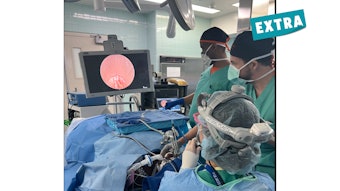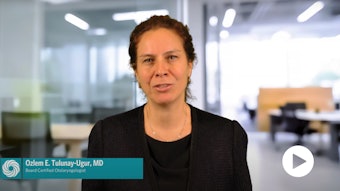#WorldVoiceDay: When to Worry about Pediatric Hoarseness
When parents should be concerned about hoarseness in children, and what to do if they suspect a problem.
Anne F. Hseu, MD, on behalf of the Voice Committee
 Anne F. Hseu, MD
Anne F. Hseu, MD
If your child is otherwise acting normally, you can start with conservative measures, including having them avoid excessive yelling or shouting. Hydration is also key—so ensure your child drinks plenty of water. If symptoms persist for more than a few weeks without improvement, it is important to seek evaluation by your pediatrician or an otolaryngologist.

Although most children with chronic hoarseness do not have a serious illness, it is important to rule out other more severe problems with a proper exam. Following that, treatments are meant to help your child have a steady voice so that they can communicate freely.





















